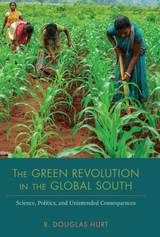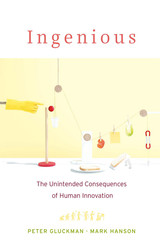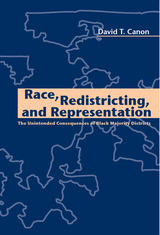
Gregory Prince draws from over 50,000 pages of public records, private documents, and interview transcripts to capture the past half-century of the Mormon Church’s attitudes on homosexuality. Initially that principally involved only its own members, but with its entry into the Hawaiian political arena, the church signaled an intent to shape the outcome of the marriage equality battle. That involvement reached a peak in 2008 during California’s fight over Proposition 8, which many came to call the “Mormon Proposition.”
In 2015, when the Supreme Court made marriage equality the law of the land, the Mormon Church turned its attention inward, declaring same-sex couples “apostates” and denying their children access to key Mormon rites of passage, including the blessing (christening) of infants and the baptism of children.
Prince's interview with KUER: https://radiowest.kuer.org/post/gay-rights-and-mormon-church
Prince's Q-Talk with Equality Utah: https://www.youtube.com/watch?v=vcnVagLY-lM&feature=youtu.be
Prince's interview with the Press: https://conta.cc/2HHmeTm
Princes's event with Benchmark Books: https://youtu.be/Daz-TFldZDA

The Green Revolution was devised to increase agricultural production worldwide, particularly in the developing world. Agriculturalists employed anhydrous ammonia and other fertilizing agents, mechanical tilling, hybridized seeds, pesticides, herbicides, and a multitude of other techniques to increase yields and feed a mushrooming human population that would otherwise suffer starvation as the world’s food supply dwindled.
In The Green Revolution in the Global South: Science, Politics, and Unintended Consequences, R. Douglas Hurt demonstrates that the Green Revolution did not turn out as neatly as scientists predicted. When its methods and products were imported to places like Indonesia and Nigeria, or even replicated indigenously, the result was a tumultuous impact on a society’s functioning. A range of factors—including cultural practices, ethnic and religious barriers, cost and availability of new technologies, climate, rainfall and aridity, soil quality, the scale of landholdings, political policies and opportunism, the rise of industrial farms, civil unrest, indigenous diseases, and corruption—entered into the Green Revolution calculus, producing a series of unintended consequences that varied from place to place. As the Green Revolution played out over time, these consequences rippled throughout societies, affecting environments, economies, political structures, and countless human lives.
Analyzing change over time, almost decade by decade, Hurt shows that the Green Revolution was driven by the state as well as science. Rather than acknowledge the vast problems with the Green Revolution or explore other models, Hurt argues, scientists and political leaders doubled down and repeated the same missteps in the name of humanity and food security. In tracing the permutations of modern science’s impact on international agricultural systems, Hurt documents how, beyond increasing yields, the Green Revolution affected social orders, politics, and lifestyles in every place its methods were applied—usually far more than once.

As humans evolved, we developed technologies to modify our environment, yet these innovations are increasingly affecting our behavior, biology, and society. Now we must figure out how to function in the world we’ve created.
Over thousands of years, humans have invented ingenious ways to gain mastery over our environment. The ability to communicate, accumulate knowledge collectively, and build on previous innovations has enabled us to change nature. Innovation has allowed us to thrive.
The trouble with innovation is that we can seldom go back and undo it. We invent, embrace, and exploit new technologies to modify our environment. Then we modify those technologies to cope with the resulting impacts. Gluckman and Hanson explore what happens when we innovate in a way that leads nature to bite back. To provide nourishment for a growing population, humans developed methods to process and preserve food; but easy access to these energy-dense foods results in obesity. To protect ourselves from dangerous pathogens we embraced cleanliness and invented antibiotics, which has led to rising rates of autoimmune diseases and antibiotic-resistant bacteria. More recently, our growing dependence on the internet and social media has been linked to mental health concerns and declining social cohesion. And we are only at the beginning of the digital transformation that will influence every part of our existence. Our ingenuity has not only changed our world—it has changed us.
Focusing on immediate benefits, we rarely pause to consider the longer-term costs of innovation. Yet we are now starting to see how our choices affect the way our brains develop and our bodies function. The implications are profound. Ingenious opens our eyes to the dangers we face and offers solutions we cannot ignore.

In the most comprehensive treatment of the subject to date, David Canon shows that the unintended consequences of black majority districts actually contradict the common wisdom that whites will not be adequately represented in these areas. Not only do black candidates need white votes to win, but this crucial "swing" vote often decides the race. And, once elected, even the black members who appeal primarily to black voters usually do a better job than white members of walking the racial tightrope, balancing the needs of their diverse constituents.
Ultimately, Canon contends, minority districting is good for the country as a whole. These districts not only give African Americans a greater voice in the political process, they promote a politics of commonality—a biracial politics—rather than a politics of difference.

“The United States does not do nation building,” claimed Secretary of Defense Donald Rumsfeld three years ago. Yet what are we to make of the American military bases in Korea? Why do American warships patrol the Somali coastline? And perhaps most significantly, why are fourteen “enduring bases” being built in Iraq? In every major foreign war fought by United States in the last century, the repercussions of the American presence have been felt long after the last Marine has left. Kenneth J. Hagan and Ian J. Bickerton argue here that, despite adamant protests from the military and government alike, nation building and occupation are indeed hallmarks—and unintended consequences—of American warmaking.
In this timely, groundbreaking study, the authors examine ten major wars fought by the United States, from the Revolutionary War to the ongoing Iraq War, and analyze the conflicts’ unintended consequences. These unexpected outcomes, Unintended Consequences persuasively demonstrates, stemmed from ill-informed decisions made at critical junctures and the surprisingly similar crises that emerged at the end of formal fighting. As a result, war did not end with treaties or withdrawn troops. Instead, time after time, the United States became inextricably involved in the issues of the defeated country, committing itself to the chaotic aftermath that often completely subverted the intended purposes of war.
Stunningly, Unintended Consequences contends that the vast majority of wars launched by the United States were unnecessary, avoidable, and catastrophically unpredictable. In a stark challenge to accepted scholarship, the authors show that the wars’ unintended consequences far outweighed the initial calculated goals, and thus forced cataclysmic shifts in American domestic and foreign policy.
A must-read for anyone concerned with the past, present, or future of American defense, Unintended Consequences offers a provocative perspective on the current predicament in Iraq and the conflicts sure to loom ahead of us.
READERS
Browse our collection.
PUBLISHERS
See BiblioVault's publisher services.
STUDENT SERVICES
Files for college accessibility offices.
UChicago Accessibility Resources
home | accessibility | search | about | contact us
BiblioVault ® 2001 - 2024
The University of Chicago Press









